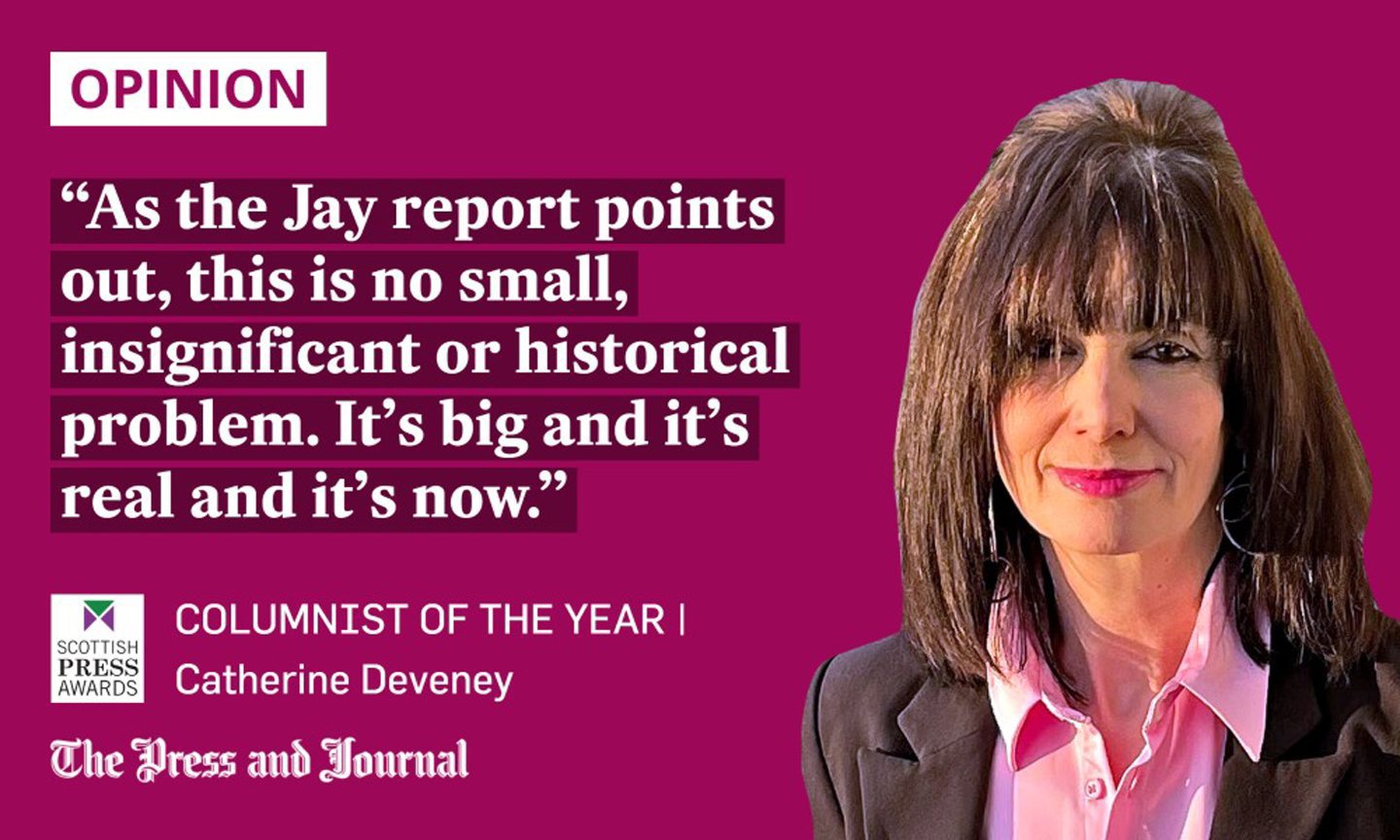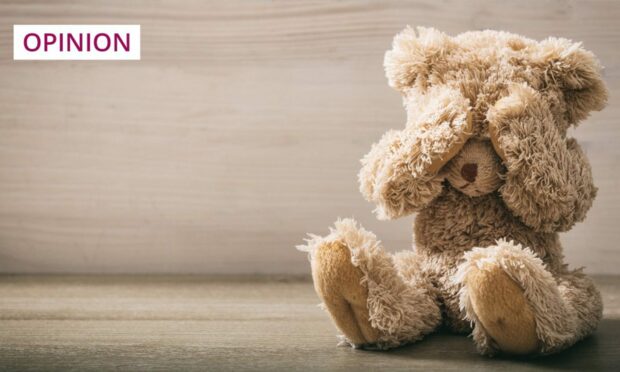The little girl in the hospital lift this week had the cute chubbiness of childhood, her sturdy wee legs dressed in white tights beneath her pink fur coat.
“What’s YOUR name?” A man asked. “Aaai… leen,” she sang, grasping her mum’s hand and looking upwards from underneath big lashes. “That’s a lovely name,” he said.
Aileen eyed him curiously, more confident now. “And my mum’s called Roisin!” We all laughed, Roisin included. The lift door opened, and Aileen was pulled along, her head turning round now to seek her newfound audience. “AND MY DAD’S CALLED DUNCAN!” She shouted as the doors closed.

How easy it is to win a child’s trust. A kind word, an encouraging smile, a sweet. How quickly they confide, cooperate, submit. Which is why the publication of the long-awaited Independent Inquiry into Child Sexual Abuse report in England and Wales was so upsetting.
Children being seen in a sexual context is nauseating. But abuse, the report said, was “endemic”, permeating all sections of society, including many of our most important institutions. Worse, it is “an ever-growing problem, exacerbated by the current and future threat of the internet”.
Wouldn’t inquiry money be better spent on helping victims?
The report, led by Professor Alexis Jay, was seven years in the making, and cost around £186 million to conduct. A similar inquiry in Scotland continues. Hard not to wonder if the money spent on inquiries might be better used supporting victims.
While the Jay report did give an important voice to victims, its recommendations say little that couldn’t have been written in advance, on the back of an envelope. The suggestion that time limits on personal injury claims be removed is long overdue rather than innovative. How can there be a time constraint on justice?
As for the suggestion that there should be a statutory requirement to report child abuse – absolutely. But it doesn’t go far enough. The requirement is for those in certain positions of authority. Shouldn’t we ALL have a statutory responsibility to report abuse?
Outrageous cover-ups and subtle ‘oversights’
Historically, complicity is one of the most pernicious aspects of abuse. No issue highlights more clearly the self-protective nature of “the authorities”. With a nod and a wink, a turned back and a deaf ear, one part of the establishment scratched the back of another for generations when it came to child abuse.
The abusers were sick. Those who protected them were cynical
Society’s powerhouses, the state, the courts, the media and the church, shamelessly protected themselves rather than children. Politicians were protected. Celebrities were protected. Priests were protected.
Even those who acted often thought it enough to cover the problem up, or move it on. There was always someone more important to defend than the victim. Why else did a Home Office review in 2013 find that 113 files on abuse were missing, lost or destroyed?
In the years I spent writing about this issue, I felt disgust at abusers, but even more with those who protected them. The abusers were sick. Those who protected them were cynical.
Victims from care homes told me of running to social workers, only to be taken back to their abusers and beaten, of running to priests and being silenced by talk of hell. The section headings of the Jay report tell us much: “I kept trying to tell them” and “All I needed was just one person to act”. Victims learned to stay silent.
Think of the damage if this gets out. But what of the human damage?
There are outrageous cover-ups and more subtle “oversights”. See no evil, hear no evil, speak no evil. Don’t interfere. Mind your own business. Think of the damage if this gets out. But what of the human damage?
As the Jay report points out, this is no small, insignificant or historical problem. It’s big and it’s real and it’s now.
We must all finally acknowledge responsibility
After writing about one abuse story concerning the Catholic church, someone I vaguely knew posted on social media. She knew the journalist who had written this story and she was disappointed with her.
She didn’t post that she was disappointed in the behaviour of the abuser. She was disappointed in it being publicised. It says everything about public attitudes. Keep your dirty washing private. Be discreet. Say nothing.
The biggest child abuse inquiry was published yesterday about thousands of victims. But yes- let’s all live stream Boris landing. https://t.co/TTxZkzrNBq
— Jamie Klingler (@jamieklingler) October 22, 2022
The lack of appetite to really challenge abuse is just another form of complicity. It seemed that if you blinked last week, you would have missed the seven-year, multimillion pound report, obsessed as we were with Liz Truss and the bring-back-Boris brigade. (Until it dawned on them all that getting back with an ex only reminds you of all the reasons you chucked them in the first place. )
Truss is a second-rate politician who will barely be remembered past next year. Abuse, on the other hand, is a permanent marker. It takes a trusting child and leaves a grubby, indelible fingerprint on their life, destroying potential careers and relationships.
If multimillion pound inquiries are worth anything, it is to ensure we all finally acknowledge responsibility. Sometimes, inaction IS action. Sometimes “not taking sides” is allowing one side victory. And, sometimes, “discretion” is just another word for betrayal.
Catherine Deveney is an award-winning investigative journalist, novelist and television presenter, and Scottish Newspaper Columnist of the Year 2022













Conversation